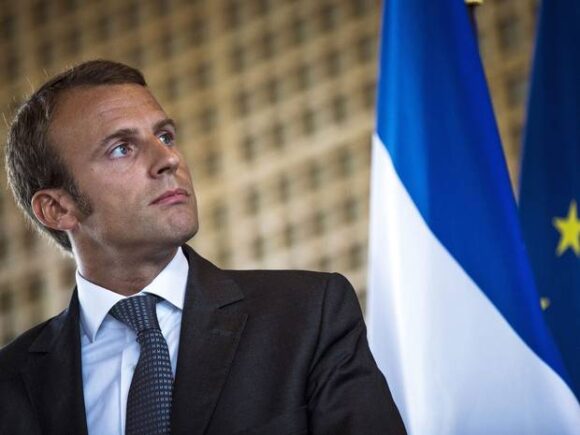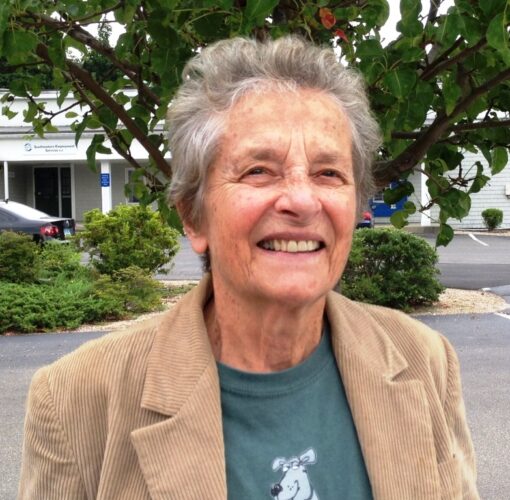
The elections to the European Parliament on June 9, 2024, raised more interest, but also more concern than ever because of the rise of the populist movement in the continent.
Every five years, the 720 Members of the European Parliament (MEPs) are elected by universal suffrage in a number proportional to the size of the states’ population, e.g., France is allotted 81 seats. The parties existing in each European Union (EU) country join the seven main political groups of the European Parliament, which can be described as follows:
- The centrist EPP (European Popular Party) is the largest group with 186 members. The president of the Commission—incumbent and reelected Ursula von Leyen (who used to be the Minister of Defense in the cabinet of Angela Merkel)—belongs to the EPP. The nomination of the leaders of the main EU institutions (Commission, European Council, diplomatic services, etc.) have to be approved by the Parliament, hence the importance of this legislative body.
- The second largest party—S & D (Social Democrats)—has 135 members. The right-left coalition with the EPP has dominated the Parliament’s history for a long time.
- In third position comes the ID (Identity and Democracy) It is a far-right group, which has just been transformed into the “Patriots of Europe” on July 8, 2024. It is growing fast, attracting populists from several countries like Hungary, the Netherlands, Austria, the Czech Republic and a few others. It has 78 members.
Giorgia Meloni and her party, the “Brothers of Italy,” as well as AfD (Alternative for Democracy) in Germany, have been keeping away from the new Patriots party until now. For the time being, they they remain in the ECR group (European Conservatives and Reformists). Although a far right prime minister, Meloni is an Atlanticist and praises pluralism—she is gradually growing more pro-Europe and wants to assist Ukraine .
The results of the June 9 elections were grim.
In Western Europe, governments of some countries are trying to adjust and contain the populists. As an example, in the Netherlands, a coalition of four right-wing parties runs the government, but Dick Schoof—the Prime Minister—is a centrist. In Germany, the left-wing AfD obtained only 16 percent of the votes whereas the ruling coalition of three parties (FPD, CDU and Greens) received 30 percent on June 9.
In Eastern Europe, however, the populists seemed to be losing steam somewhat. Donald Tusk, the Polish prime minister is working hard at undoing the societal damages done by his predecessor in the PiS (Poland’s Law and Justice Party). The right-wing prime minister of Slovakia must govern with a strong opposition and so does Viktor Orban, who now has an opponent, Peter Magyar. A liberal is heading the Romanian government.
But the populist onslaught came mostly from France. In meteoric progress, Marine Le Pen’s party the RN (Rassemblement National or National Rally) increased its number of seats in the Assemblée Nationale, from 8 in 2017, to 89 in 2022 and then to 193 on June 30, 2024.The Cac40 (French stock market) plummeted by 6 percent on June 9.
It is interesting to note that In the new landscape of the European parliament, three strong women—Marine Le Pen, Giorgia Meloni and Estonian prime minister Kaja Kallas—cannot stand each other.
On the evening of June 9, President Emmanuel Macron of France made a decision, which took everybody by surprise, including his own prime minister Gabriel Attal. He dissolved the Assemblée, which was not supposed to happen until 2027 at the end of his term.

Actually Macron had been thinking of doing just that for several months. He believed that this decision could achieve two goals—first, give the population a chance to express its opinions through a referendum and second, gamble on the hope that the new legislative body would function better within the Elysée.
Working sessions in the Assemblée had become a dysfunctional exercise with the two extreme parties—RN and LFI (La France Insoumise, or Unbowed France.) The latter is a far-left party headed by Jean Luc Mélanchon. Both these extreme parties became allies to hamper debates with the repeated use of motions de censure (votes of no confidence.) It was a dangerous decision for the president to dissolve Parliament, but whatever the outcome, he had nothing to lose.
When Roger Cohen, the New York Times correspondent in France, declared, “The Macron era is over, a chapter is closed,” he missed the complexity of French politics, and the ability of the people to rebound and emerge from chaos.
Actually “Macronism,” consisting of holding the center and acting as a magnet for moderates in both the right and the left, is still a force to reckon with, although it had been depleted by the loss of 100 seats since 2022. Given the visceral hostility of most French people toward the president, however, Macron’s name is best left unmentioned.
The two-round French elections to elect a new Assemblée were scheduled for June 30 and July 7. Those dates coincided with the beginning of the summer vacations. Families had made plans months in advance.
The problem was solved by creating more than three millions proxies and by people voting via the internet. There was a moment of panic but somehow the French got organized in record time. A swift electoral campaign got off the ground.
Participation in the voting process was impressive, reaching 69 percent—a number unsurpassed for 40 years .
The extraordinary rise of the RN in the first round of the French election with the electoral map turning bleu marine (navy blue)—an appropriate color for Marine Le Pen—seemed to give a jolt to the population and incite it to rise up to block the hard right in the second round.
Instructions were given to candidates running for a seat in the Assemblée to withdraw from the race in the case of “triangular elections” in order to beat the RN candidate. It was quite an unusual sight to see French politicians disciplined enough to follow instructions! Since there were more than 300 “triangular elections,” the result was astounding.
The RN came out in third place with 143 seats instead of the 220 seats for which they had hoped. The former Macron ‘s majority, called today Ensemble, was second with 163 seats and the NFP (Nouveau Front Populaire or New Popular front) was first with 182 seats .
Between the two rounds Jordan Bardella, 28, the chief of the RN and protégé of Le Pen, had been trained for four years by a communications specialist. He began to behave like a prime minister during his official appearances, obviously relishing the prospect of a future “co-habitation” with the president. He considered it a done deal that he would become prime minister.
He had set the bar very high, declaring that he would not accept that responsibility unless his party obtain the absolute majority. Bardella, acting effectively as a pure demagogue, made numerous promises and commitments which Marine Le Pen—a very seasoned politician—kept correcting and toning down.
One must note that the politicians during this intense time of post elections behaved with absolute correctness. No one questioned the validity of the elections’ results. In fact Prime Minister Gabriel Attal offered his resignation immediately on the very night of July 7.
Bardella said, “We have made mistakes and that includes myself.” They did not dwell on their disappointment but rather rebounded. Le Pen declared, “I have been a politician for too long to say that I was disappointed in the result.” Attal transitioned from being a prime minister to become the leader of the Renaissance party in the Assemblée.
Bardella turned his defeat in France into an advance in the European parliament. He now is the head of the new populist group called “Patriots for Europe” in Strasbourg. Unfortunately he will be even more dangerous there than in France by threatening to undermine the EU from within. Le Pen is placing herself in pole position for the 2027 presidential election.
For several days after the July 7 elections, the political scene in France has been rather confusing. It is going through labor pains to form a government. The left-wing NFP had been the driving force in the prior elections. They feel that they have a right to nominate the prime minister since their party came out as a winner on July 7—but they do not have the majority enabling them to decide.
Furthermore their alliance is fragile and made up of socialists and hard left politicians, who do not get along. Belgian neighbors advised the French people not to be too impatient. Belgium remained one whole year with a “technical government,” which just managed routine issues . Even Germany operated for two and a half months without a government.
None of the three French groups acquired the 289 seats needed to qualify for an “absolute majority.” In the future, whether they want it or not they will have to enter into alliances with other parties in order to govern. Otherwise, ironically, they will have to use the 49-3 (equivalent to Executive Orders) for which Macron has been so criticized in recent years.
The NFP has a program, which appeals strongly to the people—raise the minimum wages or smic, return to the retirement age to 60, reduce the tva (value-added tax.) But these measures will cost billions, which France can ill-afford. Besides, when the NFP declares that it wants to promote its own program and nothing else, and rejects compromises, it is a sure recipe for stalemates.
Today the Elysée Palace looks empty. The power has shifted to parliament.
France itself saved the day—at least for now. The results of the July 7 second round of French legislative elections were greeted almost across the board in Europe with a huge sigh of relief.
Editor’s Note: This is the opinion of Nicole Prévost Logan.

About the author: Nicole Prévost Logan divides her time between Essex and Paris, spending summers in the former and winters in the latter. She writes an occasional column for us from her Paris home where her topics will include politics, economy, social unrest — mostly in France — but also in other European countries. She also covers a variety of art exhibits and the performing arts in Europe. Logan is the author of ‘Forever on the Road: A Franco-American Family’s Thirty Years in the Foreign Service,’ an autobiography of her life as the wife of an overseas diplomat, who lived in 10 foreign countries on three continents. Her experiences during her foreign service life included being in Lebanon when civil war erupted, excavating a medieval city in Moscow and spending a week under house arrest in Guinea.
Nicole Logan gives a much better summary of European political events than anything I’ve read in the New York Times or the Wall Street Journal.. This is great information. Thank you for bringing it to us.